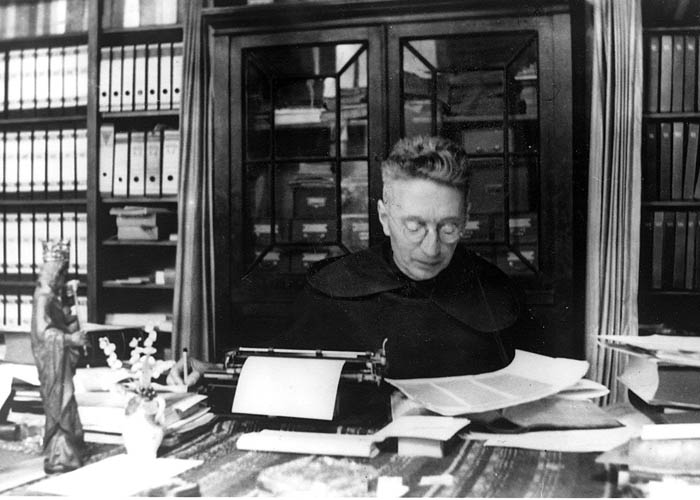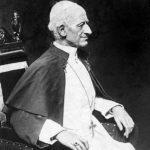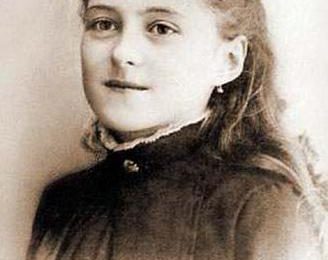“Mary must help us and assist us, dear brother. When she stretches out her hand over us, then we can endure much.”
Blessed Titus Brandsma (b 1881– d. 1942)
Blessed Titus Brandsma was a Dutch Carmelite priest, journalist, and professor who fought against the Nazis when they invaded the Netherlands. His anti-Nazi stance landed him in multiple prisons where he was brutally treated; and finally, in the notorious death-camp of Dachau where he met his demise by lethal injection. The nurse who administered the lethal injection was a fallen away Catholic. Prior to the injection, Fr. Titus forgave her, and gave her his handmade Rosary. Years later, she repented of her crime, and told the story of his death to the Carmelite Order. Numerous people have testified to his peaceful and cheerful comportment in the prison camps. He encouraged others, administered sacraments, forgave his captors, and urged others to do the same. His cause for canonization is underway, and is making progress (see here). He is a model of uncompromising resistance to evil, and to trust in Divine Providence. During his stay in prison, he wrote:
Beata solitudo! I am altogether at home in this tiny cell. Though I am there alone, our good Lord was never closer to me than he is now.
That statement is amazing: rather than succumb to bitterness and despair over his false imprisonment, Blessed Titus retained his composure and set up a routine of prayer, writing, and exercise in his cell. He wrote:
“We ought to give daily consideration to Christ’s suffering – by which our own suffering for him can mean only joy.”
As his imprisonment was extended, and he was sent to differing prisons, Blessed Titus remained calm, exhibiting a spirit of resignation. He advised an acceptance of suffering when it is encountered:
“I know that there are people who consider the message of resignation obsolete, who would much sooner preach resistance and rebellion than resignation, but the truth is that we live in world in which suffering is unavoidable… It is a denial of the true state of affairs if we do not prepare for something which we cannot escape.”
His close union with God sustained him in his sufferings, and he wrote:
“In the depths of our being we come upon the activity of God by which he sustains us and we are led and guided by him. We have to go to its deepest source to rediscover ourselves in God.”
I can picture him handing over his beloved handmade Rosary to his executioner. What an act of love. That is the action of a heroic saint, and leads us, and the Church, to conclude that: in the darkness of a string of Nazi prison camps, Blessed Titus was the light of Christ.
Let us remember these hopeful words of Blessed Titus: “Mary must help us and assist us, dear brother. When she stretches out her hand over us, then we can endure much.”
Blessed Titus, pray for us.
•SCF
More information on Blessed Titus: here and here.






